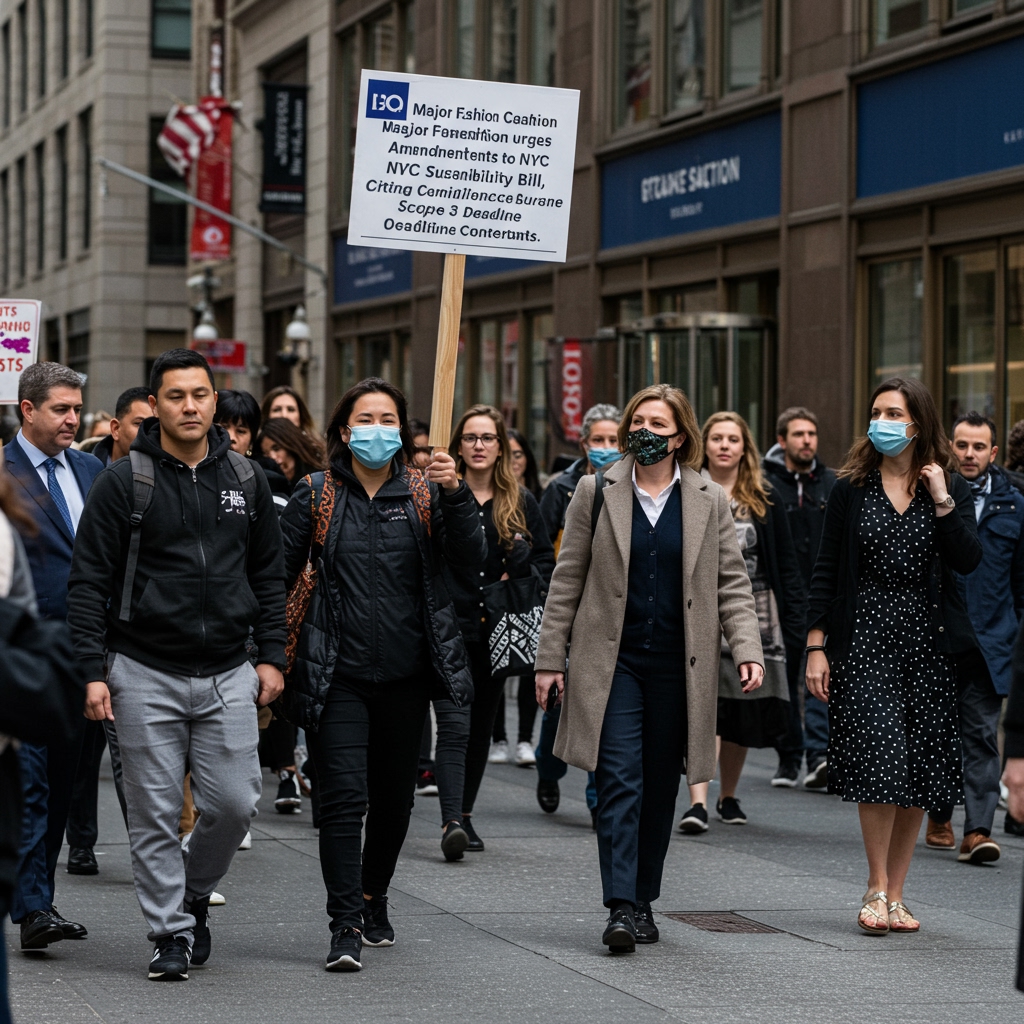Major Fashion Coalition Raises Alarms Over NYC Sustainability Bill’s Compliance Requirements
Washington D.C. – The American Fashion Alliance (AFA), a prominent coalition representing over 50 major U.S. fashion brands, today issued a formal and detailed statement expressing significant concerns regarding New York City’s recently proposed Fashion Sustainability and Social Accountability Act (SASA). While acknowledging and supporting the overarching goals of promoting environmental sustainability and social responsibility within the fashion industry, the AFA highlighted specific provisions within the current draft of the bill that they contend pose substantial compliance challenges, particularly for small to medium-sized enterprises (SMEs), and raise questions about potential conflicts with existing federal regulations.
Issued from the AFA’s headquarters in Washington D.C., the press release conveyed the industry group’s position, advocating for clearer guidelines and a more practical, phased implementation approach than is currently outlined in the proposed legislation. A central point of contention highlighted by the AFA is the bill’s demand for extensive supply chain mapping. The fashion industry operates through complex, global networks involving numerous suppliers, manufacturers, and subcontractors across various tiers. Tracing every component and process back to its origin requires sophisticated systems and resources that, while potentially achievable for the largest corporations, could place an undue burden on SMEs operating within the sector.
The proposed SASA bill aims to hold fashion companies operating in New York City accountable for their environmental and social impact throughout their value chains. It mandates due diligence requirements and public reporting on various metrics. While the fashion industry has been increasingly embracing sustainability initiatives, the AFA’s concerns center on the practicality and feasibility of meeting the specific, extensive requirements stipulated in the current draft by the proposed deadlines.
Ms. Eleanor Vance, President of the AFA, emphasized this point in the organization’s statement. “We fully support the intent behind the Fashion Sustainability and Social Accountability Act to drive positive change within our industry,” Ms. Vance stated. “Sustainability is not just an aspiration; it’s a necessity. However, the current draft of the bill includes requirements, such as the depth of supply chain mapping, that present significant logistical and financial hurdles. This is especially true for the diverse range of brands we represent, many of which are innovative SMEs who are vital to the industry’s ecosystem but may not have the same scale or resources as larger multinational corporations.”
Beyond the complexities of mapping, the AFA’s statement also raised alarms about potential conflicts with existing federal regulations. The fashion industry is already subject to various federal laws pertaining to labor practices, consumer product safety, and environmental standards. The AFA suggests that certain provisions of the SASA bill might overlap with or potentially contradict these federal requirements, creating regulatory uncertainty and compliance challenges for businesses operating across different jurisdictions. The industry seeks clarity on how the NYC legislation would interact with or complement federal frameworks to avoid fragmented and potentially conflicting mandates.
A significant area of focus for the AFA’s concerns relates to the bill’s reporting requirements, specifically those concerning Scope 3 emissions. Scope 3 emissions are indirect emissions that occur in a company’s value chain, including upstream and downstream activities like material production, transportation, and end-of-life treatment of products. Measuring and reporting on Scope 3 emissions is notoriously complex and requires extensive data collection and collaboration across the entire supply chain, often involving entities over which a brand has limited direct control.
The current draft of the SASA bill reportedly includes a 2026 effective date for reporting on Scope 3 emissions. The AFA views this deadline as highly ambitious and potentially unrealistic for widespread compliance without substantial preparatory work, clearer methodologies, and a more phased approach. The coalition argues that forcing comprehensive Scope 3 reporting by 2026 without adequate industry readiness and standardized frameworks could lead to inaccurate or incomplete disclosures, undermining the very transparency the bill seeks to achieve.
The American Fashion Alliance is not opposing the principle of increased accountability or transparency. Instead, their statement reflects a desire for a collaborative process to refine the bill’s provisions, ensuring they are both ambitious in their goals and practical in their implementation. The coalition is seeking amendments that would, for instance, provide more granular guidance on supply chain mapping requirements, potentially offer tiered compliance based on company size or revenue, and establish a more realistic timeline for the phased implementation of complex reporting, particularly for Scope 3 emissions.
In pursuit of these objectives, the AFA has indicated that discussions with NYC Council representatives are anticipated to take place next week. These meetings are expected to provide a platform for the coalition to elaborate on their specific concerns, propose potential amendments, and engage in constructive dialogue aimed at shaping legislation that is effective in advancing sustainability goals while also being feasible for the diverse array of fashion businesses that contribute significantly to New York City’s economy and cultural identity.
The fashion industry’s environmental and social footprint is under increasing scrutiny globally. Legislation like the NYC SASA bill represents a growing trend towards greater regulatory oversight. The AFA’s position underscores the complexities involved in translating broad sustainability goals into concrete, enforceable, and equitable regulations for a vast and intricate global industry. The outcome of the upcoming discussions in New York City will be closely watched by fashion businesses, policymakers, and sustainability advocates alike, as it could set a precedent for how similar legislation might be approached in other jurisdictions.





